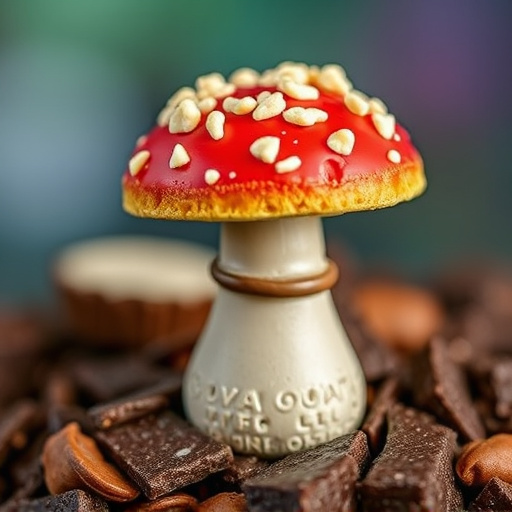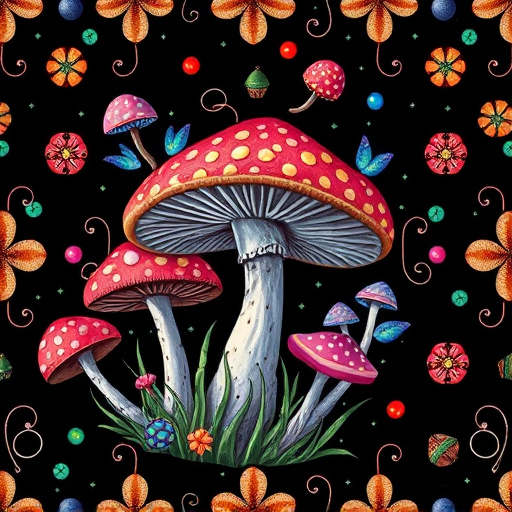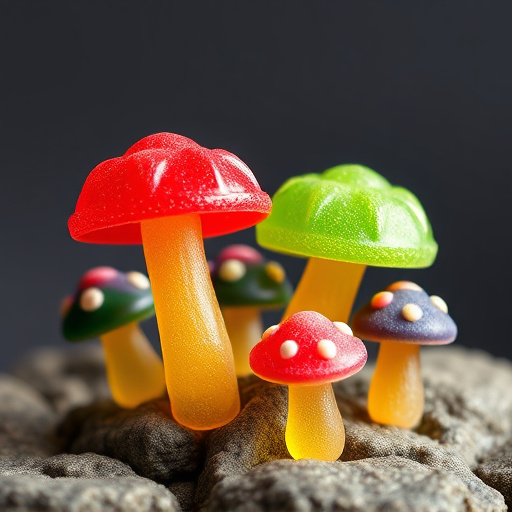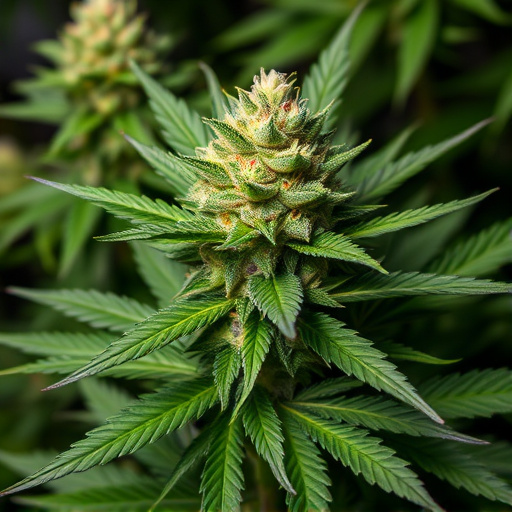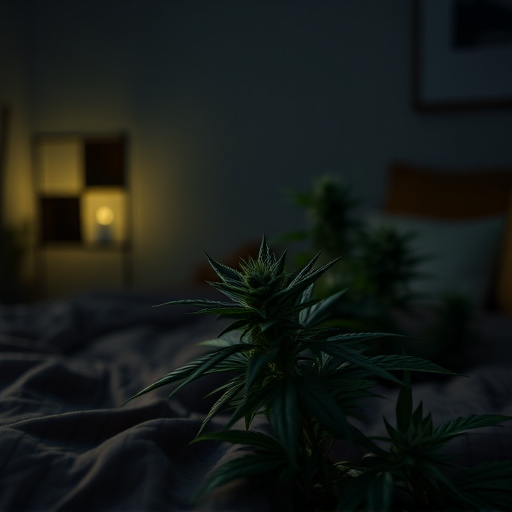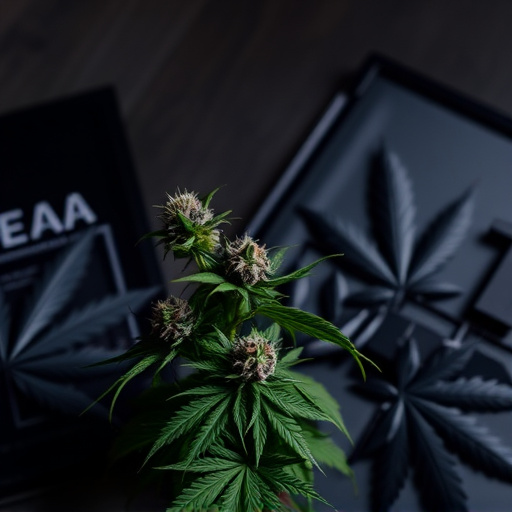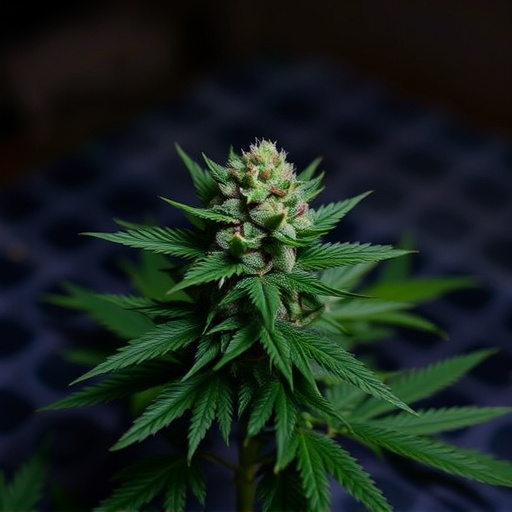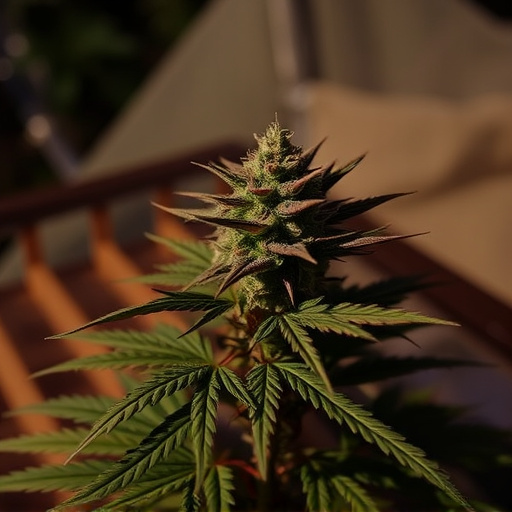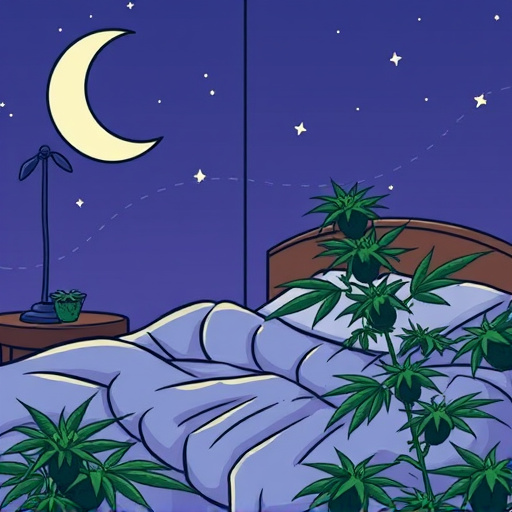Cannabis offers natural solutions for insomnia through full-spectrum or isolated cannabinoid products. Full-spectrum extracts, retaining the original plant's synergy, provide holistic benefits via the entourage effect, enhancing sleep-promoting properties. Isolated cannabinoids like THC and CBD offer precise dosing and targeted relief without psychoactive effects. Indica strains, rich in terpenes like myrcene and linalool, are popular for improving sleep quality among cannabis users targeting insomnia relief. The choice between full-spectrum and isolated products depends on personal preference and desired outcomes.
Unwind and explore the world of cannabinoids as we dissect the nuances between full-spectrum and isolated variants. In this article, we delve into the intricate chemistry of cannabinoids and their pivotal role in treating common sleep disorders, particularly insomnia. We analyze different cannabis strains tailored for calming insomnia, offering a comprehensive guide to help you navigate the options. Understanding the spectrum of cannabinoids can empower informed decisions for better sleep.
- Understanding Cannabinoids: Full-Spectrum vs. Isolated
- The Role of Cannabinoids in Treating Insomnia
- Exploring Cannabis Strains for Insomnia: A Comparative Analysis
Understanding Cannabinoids: Full-Spectrum vs. Isolated
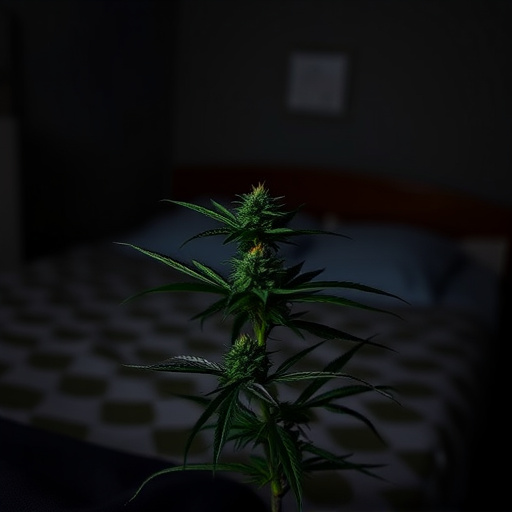
Cannabinoids are chemical compounds found in the cannabis plant, each with unique effects on the body and mind. When we talk about full-spectrum and isolated cannabinoids, we’re referring to two different forms of extraction and product creation. Full-spectrum cannabinoids include a wide range of these compounds, preserving the natural balance and synergy found within the original plant. This means that when you consume a full-spectrum extract from cannabis strains for insomnia, you benefit from what’s known as the entourage effect, where multiple cannabinoids work together to enhance each other’s therapeutic properties.
In contrast, isolated cannabinoids are single compounds extracted from the plant, removing all others. While this offers pure forms of popular cannabinoids like CBD or THC, it also means that some of the potential benefits of the complex interplay between compounds in full-spectrum products might be missing. For those seeking targeted relief using cannabis strains for insomnia, isolated cannabinoids can be effective. However, many advocates argue that full-spectrum products offer a more holistic approach to wellness and therapeutic effects.
The Role of Cannabinoids in Treating Insomnia
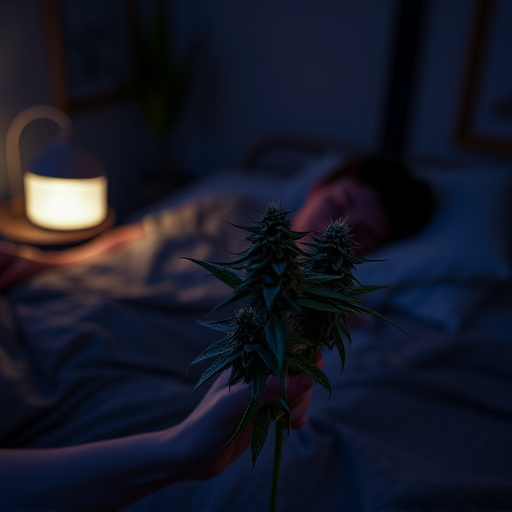
Cannabinoids, the active compounds found in cannabis plants, have garnered significant interest for their potential therapeutic benefits, including treating insomnia and promoting better sleep. Among the various cannabinoids, full-spectrum extracts offer a natural approach by providing a wide range of compounds present in the plant, replicating what one might experience from smoking or consuming specific cannabis strains for insomnia. These strains often contain higher levels of THC, known for its sedative effects, combined with other cannabinoids and terpenes that work synergistically to enhance relaxation and induce sleep.
In contrast, isolated cannabinoids provide a more targeted treatment option. Researchers have isolated specific compounds like CBD (cannabidiol) for its insomnia-relieving properties without the psychoactive effects of THC. This approach allows for precise dosing and control over the desired cannabinoid interaction. While both full-spectrum and isolated options have shown promise in managing sleep disorders, the choice between them depends on individual preferences and desired effects, highlighting the complexity of cannabis as a therapeutic tool for insomnia.
Exploring Cannabis Strains for Insomnia: A Comparative Analysis

When exploring cannabis as a potential treatment for insomnia, understanding the differences between full-spectrum and isolated cannabinoids is key. Full-spectrum cannabis contains all the natural compounds found in the plant, including terpenes and other minor cannabinoids, which work together to create an entourage effect. This means that the combination of compounds may offer more significant relief than any single isolate. On the other hand, isolated cannabinoids are pure extracts of specific compounds like THC or CBD, providing a more targeted approach.
While both types have their merits, full-spectrum strains tend to be preferred for insomnia due to their complex interaction with the body’s endocannabinoid system. Studies suggest that the entourage effect can enhance the sedative properties of cannabis, making it more effective in promoting sleep. Certain cannabis strains known for their relaxing and calming effects, such as Indica varieties, are often recommended for insomnia relief. Additionally, specific terpenes like myrcene and linalool, commonly found in these strains, have been linked to improved sleep quality.
In exploring cannabis strains for insomnia, understanding the distinction between full-spectrum and isolated cannabinoids is key. Full-spectrum products offer a broader range of compounds found naturally in the plant, potentially providing synergistic effects that isolated forms may lack. While isolated cannabinoids can deliver targeted relief, combining them with other natural elements as found in full-spectrum extracts might prove more effective for managing insomnia and enhancing overall well-being. Further research is needed to unlock the full potential of these compounds in treating sleep disorders.
